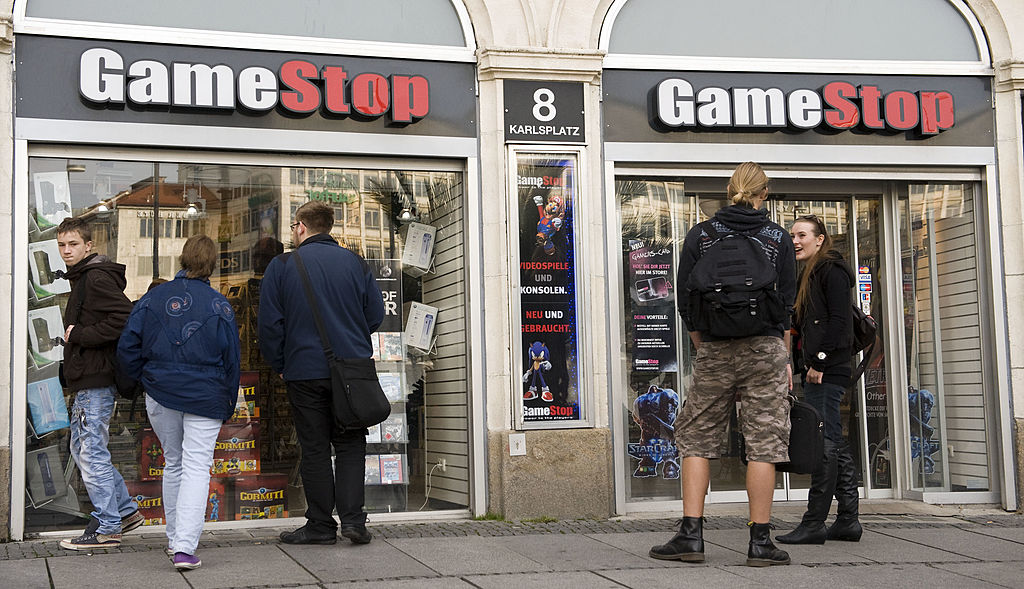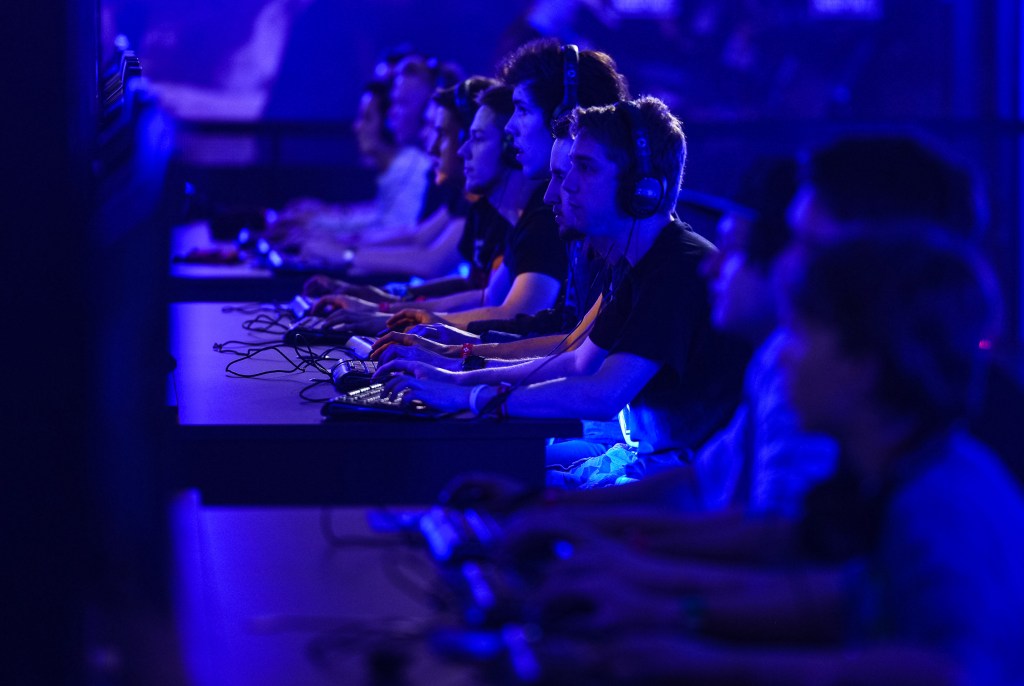Joost van Dreunen
2019 promises to be a great year in games. Innovation and competition will elevate the industry’s offerings and drive more inclusivity among a broader range of audiences.
Cloud gaming emerges as the new frontier and brings about unlikely partnerships.
Collectively, gamers will serve as the canary in the coal mine as large tech companies look to introduce new technologies to mainstream consumer audiences. Companies like Amazon, Tencent, Google and Microsoft already own and operate massive data centers that virtually run enterprise applications. In 2019, we will see continued investment in infrastructure and content acquisition as these billion-dollar companies seek to claim the consumer market.
Cloud gaming is a massive market opportunity that extends beyond just interactive entertainment. Microsoft already generates significant revenues from cloud-based services, and doubling down on gaming will open the door to broader adoption by consumers and a bigger piece of the market.
It also comes with significant competition, each player with their own motivations. Tencent, for one, got hit hard with a slowdown in mobile game approvals by the Chinese government, causing its share price to drop. Since then, things have started to improve somewhat, but it has incentivized Tencent to reduce its exposure in gaming and look for other non-content business segments that generate steady revenue and require less government regulation. For the first three quarters of 2018, Tencent’s cloud operations generated $864 million (RMB 6 billion) in revenues and more than doubled year-over-year.
Google has also been trying to wiggle its way into the cloud gaming business. Its cloud operations make about $10 billion annually, and recently appointed a new CEO likely to expand Google Cloud’s vertical product capabilities in non-tech categories.
And there is, of course, Amazon. With currently more than 50 percent market share in cloud computing and a strong user acquisition and engagement channel with Twitch, Amazon is uniquely positioned. But its previous efforts around interactive entertainment have so far not produced any real tangible results despite it ramping up expenditure. This makes it more likely that Amazon will become a third-party infrastructure provider for companies like Sony and Nintendo instead.
As these titans double down on cloud gaming initiatives, we can expect to see some surprising partnerships. For instance, Tencent and Google are currently working together in China. This gives the latter an entry point into a market that has long been out of reach. Meanwhile, incumbents like Sony, Nintendo and legacy game publishers will have to decide on going at it alone, as is the case of Electronic Arts, or buddying up and surrendering a piece of revenue.

Gamers win as the PC games market breaks into pieces.
It’s not a bad thing. But after more than a decade of a virtual monopoly held by Valve, new contenders have emerged. We already saw how Valve tried to get in front of Epic’s announcement that it was lowering its platform fees. And not long after, Discord popped up with an even better rate.
Breaking with the standard 30 percent cut, which is what most platforms (Apple, Facebook) claim in exchange for their services, Valve announced a few major changes. Two key sentences from the announcement. First, Valve’s new revenue distribution: “when a game makes over $10 million on Steam, the revenue share for that application will adjust to 75%/25% on earnings beyond $10M. At $50 million, the revenue share will adjust to 80%/20% on earnings beyond $50M.” Succinctly, make more and keep more.
Part of what is driving this is consolidation at the top. In the PC market the top-line firms have been growing at an incredible rate. Between 2013 and 2017, Activision grew its PC operations at +10 percent compound annual growth rate. EA’s was +30 percent, and Bethesda’s +36 percent. Meanwhile, the share of the top four public companies, based on PC gaming revenue, grew from 44 percent to 60 percent in that same period. It’s getting less crowded at the top and digital stores will have to compete.
The big publishers like Activision, Ubisoft and EA already have their digital storefronts and distribution platforms. Different from the brick-and-mortar space, publishers managed to build their own rather than rely on third-parties. For years, the big guys have had no interest in putting their content side-by-side with a growing number of small and medium-sized game companies.
Epic’s wild success with Fortnite has afforded it a much broader range of strategic options. So far it has lowered its store fees and retroactively paid developers on its platform. And now it is budding into the digital PC market by using its vast financial resources to compete head-on with Valve. Finally, Discord’s entry should be noted, too. Adding a content offering to an existing community, rather than the other way around, Discord is the new hot thing. Certainly, it has yet to lay claim to a hit title of its own. But it has both the expertise and critical mass to become an important next store front. It raised an additional $150 million right before the holidays.
All this takes place against the backdrop of a declining physical games market. It’s been a tough few months in meat space. In its recent earnings, GameStop came in at $2.08 billion and +4.8 percent in global sales, but Wall Street was not impressed. GameStop blamed Call of Duty and “sports titles.” With the recent sell-off of Spring Mobile to lower its debt, the specialty retailer continues on the hunt for new leadership, either in the form of a new CEO (unlikely) or new owner (likely). Whoever is going to scoop up GameStop is probably waiting for 19Q1 when sales dip and its valuation will be lower.
The breaking up of Valve’s dominance is good for players and companies that make games. Consumers will get better prices and more choice, and the various digital stores will compete over functionality and improved user experience. This is a win-win for all.

Walled gardens will be broken down, enabling cross-platform play with anyone, anywhere.
Despite digitization, the bulk of interactive entertainment has remained within one of the various walled gardens. That is going to change. Like telecom networks that allow people to speak to each other irrespective of their phone provider, so, too, will online gaming break down silos. In 2019, cross-platform play will become ubiquitous. The end of 2018 has already shown the potential of this as Fortnite’s success resulted in each of the platforms agreeing to play nicely with one another.
Legacy publishers like Activision Blizzard have also tasted what cross-platform play can do for their franchises: Hearthstone has continued to dominate the collective card game category, because it works seamlessly across PC and mobile, and offers a smooth integration with live-streaming platforms like Twitch.
Cross-platform play should be at the top of every studio’s design agenda in 2019.

Subscriptions and bundled content will drive sales in 2019.
After seeing the initial success with subscriptions enjoyed by Twitch and Microsoft’s GamePass, more companies will adopt this monetization model. Large platform holders like Sony and Apple are looking to grow their revenues by offering content subscriptions. Both of these companies have indicated they have plans to increase services revenue as a direct response to reaching the limit of how much hardware they can sell.
Game publishers have been experimenting with micro-transactions to great success. Tentpole franchises like FIFA, Hearthstone and GTA V Online have made a mint from what they call “recurrent revenues.” Beyond up-selling their audiences on a regular schedule with content updates, they will explore subscription models that will provide massive discounts and unique content to players in exchange for a more predictable revenue flows.

Video games will face more and new regulation with a focus on kids.
Now that gaming has emerged as a mainstream form of entertainment, the industry can expect more scrutiny. In addition, there will be sharper focus on kids and technology in 2019. Data companies will be increasingly under the microscope. Similar to the loot box scandal that resulted in various governments speaking out, we will see an effort focused on protecting children. This means that game companies will be held to a higher standard with regards to how they handle data on minors. Against the background of a festering trade war between eastern and western economies, data ownership, in particular around children, will emerge as a political topic and strategic business challenge.
It also means that titles like Fortnite will be fingered as culprits in narratives around an erosion of culture and well-being (although this is largely driven by misinformed industry critics). The title’s appeal to younger audiences will make it a likely scapegoat as the usual choir sings its disdain for video games. This year’s congressional hearing in the U.S. more than satisfied our need for examples of how disconnected government representatives are from technology used by literally everyone else. Different from previous generations, however, I expect the companies currently at the top of the food chain to know exactly how to respond. They will push titles that offer a safe, pleasant space for kids to play, uninterrupted by broader challenges found everywhere else.
Next year will, however, not be a continuation of exuberance as we’ve seen previously. Trends in related industries suggest that gaming, too, will move toward a more concentrated competitive landscape and closer government monitoring.

Further consolidation is imminent for the games industry.
In response to the slowdown in consumer spending, some game companies will go out of business and others will gobble up the failing ones to strengthen their market positions. Nothing new here, but it does leave room for speculation as to who will buy whom. I previously speculated that Amazon would buy GameStop and still think they might. Only it will happen when GameStop reaches its wits end, probably at the end of Q1 2019.
Across Europe there have been a series of smaller acquisitions throughout the year, some of which are now turning sour. Starbreeze had its offices raided (which I’m told sounded worse than it was). Even so, this year the ambitious portfolio approach of buying up smaller studios and leveraging their IP against efficient distribution networks became, perhaps, too popular.
Finally, I expect companies like Tencent to continue satisfying their appetites for foreign assets. If nothing else, this year has cemented Tencent’s need to diversify as they look to mitigate some of its recent stresses by lowering its exposure to games revenue and further investing in western companies and platforms. Over the past two years its success with this strategy has greatly lowered competition across PC and mobile, the two most innovative categories.
This does not mean that innovation itself is at risk. It just means that the stakes will be higher for any firm that does not make a billion or more in revenues.

The coming winter brings a slowdown in growth, and possibly in revenue and innovation.
I’ve been writing about this for a while now. But don’t misunderstand: I want to be wrong about this. While I would like to predict that 2019 will bring even more growth and more money for everyone, the supporting evidence simply isn’t there.
For one, mobile gaming is showing saturation across different markets, including in China. It has evolved from insignificance to become the biggest games market worldwide and is now starting to slow. We are also at the end of the current console cycle. This simply means that the platforms are going to discount their hardware and the bulk of consumers looking to spend are disproportionately price conscious.
Overall economic indicators suggest that consumer spending, especially in the U.S., is headed to a slowdown. Following the tax breaks earlier in the year, overall spending surprised even the retailers. But that party is going to end soon. Finally, as gaming has become mainstream, its underlying economics have shifted. In broad terms this means that where previously the games industry may have seemed “counter-cyclical” it is going to follow suit with whatever happens to consumer spending at large. In addition, investors have become savvier and are starting to trade aggressively against game stocks. This means game companies are less inclined to take risks on content innovation (as in the case of EA).
The long-term silver lining here is that this imminent stagnation is the precursor of the industry’s overall transition. But before spring comes winter.

Live-streamers and influencers embark on a drama binge.
Yes, newfound fame will get the better of them and stupid things will be said. This is still the very first generation that suddenly finds itself thrust into the mainstream spotlight — they don’t have the benefit of the intense vetting that other industries have subjected their rising stars to before sending them on the main stage. With many still amateurs and competing against one another to win the favor of audiences and aggregators alike, the stakes are substantially higher.
In their hunger for attention, aspiring streamers will sacrifice their authenticity and some will undoubtedly ruin their careers before it even starts. Mounting pressures from growing competition will drive this new generation of tastemakers to “keep it real” and remain authentic. Twitch and YouTube will do what they can, I’m sure. But for many, this authenticity will be too much.

EA takes a hit in 2019.
Among the Big Three, Electronic Arts will have the toughest year. Despite its aggressive expansion effort illustrated by the acquisition of GameFly’s streaming division, EA is going to face the music with investors. This is somewhat undeserved, because financial investors insist on continual growth and generally can’t see past the next quarter. And, to be fair, EA has a few weaknesses: its revenue and its margin are highly dependent on the continuing success of FIFA Ultimate Team. In addition, it has relatively little new IP in the pipe, which makes it even more difficult for investors to care about the longer-term future. Simply put, EA can’t free itself from Wall Street’s needs as several analysts have already started to lower their expectations for the year ahead.

GameStop sells, but it’s not a party.
I already predicted this last year and was almost right: GameStop has been trying to get acquired for the past six months. Its C-suite has seen better days, most recently resulting in a letter from one of its largest shareholders, Tiger Management, to get its sh!t together (aka perform a strategic review). The company has been unable to find a buyer and now finds itself forced to essentially abandon the diversification strategy it initiated in 2014 by acquiring retail chain in parallel market segments. Just recently GameStop sold off Spring Mobile and is likely to use the money to pay off its debts and improve the likelihood of some private equity firm or a company like Amazon to buy it. No one expected it to be a great year for games retail, but it’s getting sadder.































Comment